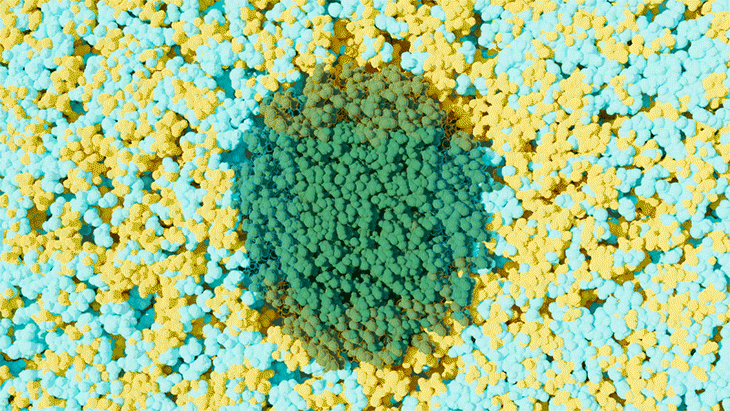
Filter News
Area of Research
- (-) Supercomputing (64)
- Advanced Manufacturing (4)
- Biology and Environment (39)
- Biology and Soft Matter (1)
- Computational Biology (1)
- Computational Engineering (1)
- Computer Science (1)
- Electricity and Smart Grid (1)
- Energy Science (60)
- Functional Materials for Energy (1)
- Fusion and Fission (7)
- Fusion Energy (1)
- Isotope Development and Production (1)
- Isotopes (27)
- Materials (75)
- Materials for Computing (7)
- Mathematics (1)
- National Security (32)
- Neutron Science (123)
- Nuclear Science and Technology (16)
- Quantum information Science (2)
- Sensors and Controls (1)
- Transportation Systems (1)
News Topics
- (-) Cybersecurity (8)
- (-) Frontier (32)
- (-) Isotopes (2)
- (-) Neutron Science (13)
- (-) Physics (8)
- (-) Security (6)
- (-) Space Exploration (3)
- 3-D Printing/Advanced Manufacturing (5)
- Advanced Reactors (1)
- Artificial Intelligence (37)
- Big Data (22)
- Bioenergy (9)
- Biology (11)
- Biomedical (17)
- Biotechnology (2)
- Buildings (4)
- Chemical Sciences (5)
- Computer Science (96)
- Coronavirus (14)
- Critical Materials (3)
- Energy Storage (8)
- Environment (22)
- Exascale Computing (26)
- Fusion (1)
- Grid (5)
- High-Performance Computing (43)
- Machine Learning (15)
- Materials (15)
- Materials Science (16)
- Mathematics (2)
- Microscopy (7)
- Molten Salt (1)
- Nanotechnology (11)
- National Security (8)
- Nuclear Energy (4)
- Partnerships (1)
- Polymers (2)
- Quantum Computing (20)
- Quantum Science (25)
- Simulation (16)
- Software (1)
- Summit (43)
- Transportation (6)
Media Contacts

Since the 1930s, scientists have been using particle accelerators to gain insights into the structure of matter and the laws of physics that govern our world.

In the quest for advanced vehicles with higher energy efficiency and ultra-low emissions, ORNL researchers are accelerating a research engine that gives scientists and engineers an unprecedented view inside the atomic-level workings of combustion engines in real time.

Six scientists at the Department of Energy’s Oak Ridge National Laboratory were named Battelle Distinguished Inventors, in recognition of obtaining 14 or more patents during their careers at the lab.

Six ORNL scientists have been elected as fellows to the American Association for the Advancement of Science, or AAAS.

A multi-institutional team, led by a group of investigators at Oak Ridge National Laboratory, has been studying various SARS-CoV-2 protein targets, including the virus’s main protease. The feat has earned the team a finalist nomination for the Association of Computing Machinery, or ACM, Gordon Bell Special Prize for High Performance Computing-Based COVID-19 Research.

The combination of bioenergy with carbon capture and storage could cost-effectively sequester hundreds of millions of metric tons per year of carbon dioxide in the United States, making it a competitive solution for carbon management, according to a new analysis by ORNL scientists.

From materials science and earth system modeling to quantum information science and cybersecurity, experts in many fields run simulations and conduct experiments to collect the abundance of data necessary for scientific progress.

Five researchers at the Department of Energy’s Oak Ridge National Laboratory have been named ORNL Corporate Fellows in recognition of significant career accomplishments and continued leadership in their scientific fields.

Scientists at ORNL used neutron scattering and supercomputing to better understand how an organic solvent and water work together to break down plant biomass, creating a pathway to significantly improve the production of renewable

A team of researchers has performed the first room-temperature X-ray measurements on the SARS-CoV-2 main protease — the enzyme that enables the virus to reproduce.


